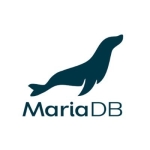What is our primary use case?
This client, specifically, is using it for Dynamics NAV. I don't know what they're calling it today. Microsoft changes the names all the time, 365 NAV Dynamics. This is ridiculous. We're using it for that, and we have more of a niche CRM database called Tour de Force. It's owned by a company called White Cup. They own a bunch of companies, and it sits on Microsoft SQL, as well.
What is most valuable?
One of the things I most like about SQL Server is the log shipping piece.
I have another client who uses GP, and they use Power BI to take the data out of the back end. I'm doing an IT assessment there, so I'm not really involved in that specifically, other than the fact this person has too many rights.
I have an auditing background, and I spent 25 years doing IT auditing as well. I understand I'm not a programmer, but I've been involved with enough of them. The log shipping really is one of the greatest features. It is not the only database you can do it in, but that was one of the better features of it because I am a backup nut. We use Veeam Backup and Replication to a local mass storage, but then we fully replicate everything in Veeam to another site with the exact same server set up at our other location. But I wasn't satisfied with that from a disaster recovery point of view. My IT company was, but I was not. I said, "I want to do SQL log shipping. I want to do an SQL backup and SQL log shipping and move it to Azure in the cloud," which is what we do every day. We have an hour by hour backup, in addition to our multiple nightly backups and our replication to our other site, and we've had to use it and it worked. This is a great feature.
What needs improvement?
Somebody who knows it would easily say, "No problem," because we set up our log shipping in about three hours. We sometimes have challenges with it in terms of timing, of getting it out, backing it up, and sending it to the cloud. There are always the glitches, but I get a daily report on what's going on. Around 30 backup jobs are running at all times, because it is a big company. It's a 200 person company.
In the next releases, I would only like more enhanced backups and more restore points. Data backup and cyber protection are the number one things everybody should be thinking about now. They may not be, but they should be. We're going to go to the Azure environment because that really is a duplicate of the on-premise environment, just somewhere else.
For how long have I used the solution?
I would say that I have been directly involved in the ERP world for as long as I can remember, but SQL really didn't appear on my radar until the mid-90s. I know that early GP was out there. I believe it was on an earlier version of SQL. I use it heavily now because I'm the CIO. I'm a consultant, but I'm a CIO of a client for almost nine years, where we have two major databases sitting on SQL.
So I have always been involved in a Microsoft environment.
We are always deploying the latest version. I have multiple clients with SQL and Oracle. But my big client is always up to date.
Whether it is deployed on the cloud or on premises depends on the client. My big client is on-premise and we have a two year plan to move to the cloud.
Buyer's Guide
SQL Server
September 2025
Learn what your peers think about SQL Server. Get advice and tips from experienced pros sharing their opinions. Updated: September 2025.
871,469 professionals have used our research since 2012.
What do I think about the scalability of the solution?
In terms of scalability, I haven't seen any problems with it. We have 120 users. Every once in a while we get a record lock in our data. It's very rare though. Once every six months somebody hits the same record and same night. It's very rare. You go out for a minute, come back in, and it's over.
I don't have any Fortune 5,000, Fortune 2000, or Fortune 1000 companies. According to the governmental definition, they're small, they're SMB, but my big client is 200 million. To me, that's a lot of money-
But in the eyes of the government, they're still a medium company. I have clients with 1,000 people, but they're only a $50 million company. Those are not for profits. They're paying people 10 bucks an hour. It's very hard to categorize that if you're looking at it from a business perspective versus a technical perspective. I have a client with 1,000 people with 82 sites. So that's a technical challenge, but they don't have the same kind of money as the other people do.
It's a different way to categorize it.
How are customer service and support?
Calling Microsoft is like calling Verizon. I wouldn't do that. I have a middleman that I work with. It's easier because they have more clout than do. I know that.
Which solution did I use previously and why did I switch?
This client, the big client I've been talking about, had some ancient DOS system from the 70s when I got there in 2012. They had no data dictionary note. I think it was running on an early version of Unix on a Compaq machine. When I got there, it was 15 years old. The thing was still running until six months ago. You can't believe it. This thing wouldn't die. I tried to make it die multiple times, but we converted from that system onto Dynamics NAV.
It's a two year undertaking. The SQL was stable all the time, never had a problem with it.
How was the initial setup?
In terms of the initial setup, you probably need to know what you're doing. I haven't seen any real laypeople get into the tables. I know it's possible to learn. Things like Power BI have made it easier, but if you don't know what the tables are you have to be a very methodical person to be able to do that stuff. We use a company called ArcherPoint for dynamics. They're one of the largest dynamics dealers in the country, and they have their stuff together. This woman I use there knows her stuff. She knows SQL very well, and my IT company also has a senior guy who they often talk to, and it always seems pretty straightforward, whatever they do. It's never a big install.
Usually a few hours and it's over.
What's my experience with pricing, setup cost, and licensing?
This client has money, so I never hear any complaints. It seems reasonable to me. I think the biggest problem that Microsoft had back in the early 2000s was that the pricing of SQL was a nightmare. You could call five Microsoft people at Microsoft, and you'd get five different prices. Microsoft has a problem. Well, they have lots of problems. They characterize themselves as perfect.
From 40 years ago, I already knew well in advance of the clients that there is a security hole. I'm looking at Business Central, and somebody who has a global super admin of the tenant can get into the client's accounting system if they have full rights to their 365 email system. That's a big security gap. Their IT company shouldn't be in their financial system. Why would that be? I came up with the idea after talking to five different Microsoft people to just buy another tenant that they don't have access to and they said, "Oh, that works."
What other advice do I have?
SQL Server is a good mainstream application that has been around for quite some time, and I like when things are around for a while. I don't like to be the first kid on the block. I remember when Power BI first came out. I waited a year and a half to use it.
The big thing for NAV was to get reports. We still use it, but we mostly abandoned it. It's really not working as well as I would've liked. And that reads SQL tables. While that was great, you had to trust the person who wrote it, that it would include all the data you needed. There's a big trust. We often found lots of problems with it, so we decided to just program all these reports inside the application. That worked really well. The thing I don't like is, I know a lot of people don't know about the backend security of SQL. They think others cannot get into their system and I tell them they can, they have the SA password. People are shocked. That's a hole that they should plug.
They should plug that and make that more apparent to people. When I did auditing, most clients had SQL based applications, and we'd always say, "Who's got the SA password," and they'd say, "What are you talking about?" Then we would tell them, and there is all this SQL injection stuff that used to happen. I haven't heard of any hacking through the back end in a while. Because you're talking about cybersecurity being so important now, people can hack in and get into the back end, although 99% of cyber is ransomware through email.
The risk is probably still low, but I try to close up all the gaps if I can. Clients don't know about this stuff. They don't even know enough to ask. I find a lot of IT people don't even think about stuff like that.
I'll ask a client if they back up their data and how often. If they talk to their IT guy? If they say, "Once a night," I ask, "Okay, what if it was the middle of the day and you go down? You lose all your data." I ask if they have ever heard of SQL log shipping. They start stuttering because they don't know how to set it up.
It would be great if Microsoft was more up-front about how to do that stuff. It's a great feature.
On a scale of one to ten, I would probably give SQL Server a nine. I don't give anybody a perfect score, certainly not in the technology world. Oracle is out there. NetSuite is just giving it away. You have a lot of other applications not running on SQL, like Intacct, who are creating proprietary, non-Microsoft things to come against what Microsoft is offering like interoperability with different applications. They are really pushing a different environment. I think Microsoft is going to win, but Sage is not a small company.
We have all these big titans fighting each other.
Disclosure: My company does not have a business relationship with this vendor other than being a customer.

















